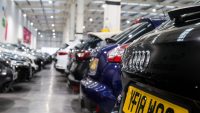 VERTU Motors’ chief executive, Robert Forrester, blogs exclusively for Car Dealer and explains the real reasons for the growth in new car sales.
VERTU Motors’ chief executive, Robert Forrester, blogs exclusively for Car Dealer and explains the real reasons for the growth in new car sales.
In the last three weeks, the BBC has used its highest profile radio programmes to ventilate a theory about the growth of motor sales. It goes like this: with banks paying large compensation claims for PPI mis-selling, thousands of people have rushed out and spent their windfall on a new car, hence the motor sector is in clover.
I have never heard such tosh. There are many more straightforward and logical reasons behind the stunning success of the motor retail recovery.
They start with the recovery in the general economy (which some BBC reports prefer to side-line in case the Chancellor gets too much credit!) and end up with the herculean efforts by motor manufacturers and retailers to change their offering to a public that wanted better value.
Let’s examine the key facts. Before scrappage was introduced in 2009 new car sales had slumped to catastrophically low levels. Scrappage helped, but lasting growth has only been achieved in the past 22 months.
According to figures from Society of Motor Manufacturers and Traders (SMMT) published in January, 2.26 million new vehicles were registered in 2013, which is 10.8 per cent higher than 2012.
In December alone, new car sales rose by almost a quarter, to 152,918, while 2013 was the best year for new car sales since 2007. By comparison, new car sales across Europe fell by 2.8 per cent in the 11 months to November 2013, putting it on track for a sixth straight annual decline.
Now consider PPI compensation payments. According to the Financial Ombudsman Service (FOS), the average PPI pay-out is about £2,750.
So far, the banks have paid out about £12bn, with banks expecting the total bill to be in the region of £20bn.
However, these payments have been spread out over around four years, working out at around a million payments per year. Given that the new car market has been rising for less than two years and has now reached two million per year, it is not right to make a direct connection.
‘The confidence has come about because the economy is growing, interest rates are low, and people are not afraid of losing their jobs.’
There are more rational explanations, the firstly being that confidence has returned to the economy. Whether the deposit for a car is paid for by PPI or somebody’s savings, they need the confidence to commit to a repayment schedule.
The confidence has come about because the economy is growing, interest rates are low, and people are not afraid of losing their jobs. In fact the numbers in work have increased by 1.2 million since the middle of 2010 and unemployment is lower than it was then – something the Government’s critics resolutely refused to accept until recently.
It is interesting to note that public policy has been quietly putting more money in people’s pockets – the average taxpayer is paying nearly £600 less income tax as a result of changes to the threshold; the state pension has increased by £650 per year in cash terms, and fuel duty changes have led to a real terms cut in the cost to fill up an average car amounting £360 per year.
But the most significant factor has been the record low interest rates. Even if rates were to rise next year by a small amount, we would still be living in a period of cheap money.
Compared to historic mortgage rate trends, families are better off by thousands of pounds a year with these low rates. The amount saved on the average mortgage is around £1,000 per year for every one per cent rise in rates. Low interest rates have also help drive highly competitive and affordable finance deals on motors.
Meanwhile, the industry can take pride in accurately predicting and serving customer demand. Manufacturers have introduced exciting, efficient new models with a range of options appropriate for modern living. They have done so whilst driving down prices in real terms.
At the same time, the motor retail industry has got its act together. Nowhere in Europe is motor retail as sophisticated and customer-focussed as the UK. Dealerships are modern, bright, and efficient. The old-fashioned methods of high-pressure sales have been replaced by friendly, customer-centred service of impeccable standards.
BBC commentators needn’t flail around looking for reasons to excuse our success. It is not the banks’ PPI payments; it is down to a well-managed economy and a wonderfully co-ordinated motor sector.

































